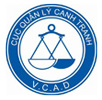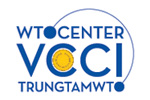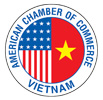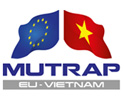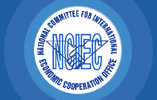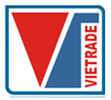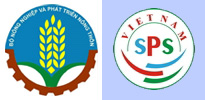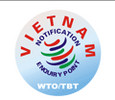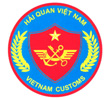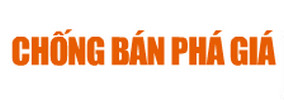
Signed along with the Vietnam-EU Free Trade Agreement in Hanoi on June 30, the Europe – Vietnam Investment Protection Agreement (EVIPA) is in the process of waiting for the European Parliament and parliaments of EU member states to be adopted. This agreement is expected to boost the economy to bring a new flow of energy from foreign investment of EU countries. However, to gain access to this valuable opportunity, Vietnam still has much to do.
Upgrade yourself when playing with the major powers
In investment cooperation, the signing of EVIPA with more comprehensive and balanced commitments on investment protection, along with important commitments on opening markets for goods, services, investments and purchases Government procurement and intellectual property in accordance with EVFTA regulations, are evaluated to contribute significantly to strengthening the confidence of foreign investors in general and EU investors in particular in terms of the attractive, safe, friendly and highly competitive nature of the business investment environment in Vietnam.
According to Nguyen Van Toan, Vice Chairman of the Association of Foreign Investment Enterprises, with the signing of EVIPA, Vietnam will enjoy many advantages when high quality investment capital from developed countries in EU enters Vietnam, and Vietnamese businesses will have more knowledge about the investment environment of European countries to expand their investment.
Previously, the Minister of Planning and Investment affirmed that the signing of EVIPA will contribute to attracting high quality investment from EU investors and create good opportunities for Vietnamese investors to access EU market. This is entirely consistent with the orientation of attracting foreign direct investment (FDI). Accordingly, Vietnam advocates the direction of attracting FDI from quantity to quality, prioritising projects with high added value, advanced technology, modern management, connecting global supply chains and having spillover effects, organic cohesion with the domestic economic sector, and are consistent with restructuring the economy and innovating growth models, improving the quality, productivity and competitiveness of economy, ensuring the goal of sustainable development, environmental protection and social justice.
Nguyen Van Toan also emphasised that investment capital from the EU will contribute to making society more transparent and advanced, because to attract this capital, countries are forced to undergo strong pressure on institutional reform. Besides, in terms of technology, the current trend of industrial revolution 4.0 is developing, especially in European countries, so if the cooperation with Europe develops, Vietnam will have access achievements of the industrial revolution 4.0 more quickly.
Dr. Vu TienLoc, Chairman of Vietnam Chamber of Commerce and Industry, said Vietnam is in the process of developing a lot of capital needed for investment in infrastructure and high-tech industry. Meanwhile, the EU has many advantages in terms of capital, when the EVFTA and EVIPA are signed and approved, it will affect the flow of capital from the EU, and cleaner, more quality, and more advanced technology will pour into Vietnam. FDI enterprises from EU want to invest in Vietnam to take advantage of Vietnam's advantages such as young manpower and open economy to export back, from there Vietnam’s capital investment quality will be improved. This is also the process of restructuring FDI inflows in the direction of US, Japanese and EU investment flows that need to be cleared up because they are associated with many clean technologies and clean management processes.
Facing many challenges
Regarding difficulties and challenges in the process of this agreement being ratified and officially put into practice, Nguyen Van Toan said, in fact, the trade and investment cooperation agreement with EU has been split into two agreements. The EVFTA may be quickly adopted and enforced more than the EVIPA. The EVIPA may be more difficult due to procedures needed to be approved by European Union countries. When the EVIPA comes into effect, it will cover the entire EU, completely replacing the 21 previously signed investment incentives and protection agreements, so administrative procedures will be more complicated because apart from the European Parliament, each EU member state parliament must approve it. If major countries such as France and Germany approve in advance, it will create favourable conditions for smaller countries to quickly approve this agreement. However, there are other countries that have not cooperated much with Vietnam, so they will need more time to consider.
Besides, regarding the preparations of Vietnam to receive this investment capital, Toan also said that there has been a preparation process but it seems Vietnam is not well prepared, not ready. The pressure of this agreement on the Government is to drastically reform institutions to ensure transparency, because Europeans in general and European enterprises in particular attach great importance to transparency. Europe is also made up of countries that respect the rule of law, so all matters are done in accordance with the law, unlike the ’reasonable and affectionate’ treatment in Vietnam. This thing makes pressures on the Government, Vietnamese people and businesses to follow the provisions of the signed agreement to enhance better integration with the EU.
Affirming the opportunities to attract investment from the EU, the Minister of Planning and Investment stressed that Vietnam is also facing some challenges in the implementation of the agreement such as institutions, policies and management mechanisms; infrastructure system, technology level and human resources; capacity and competitiveness of Vietnamese enterprises.
The head of the Ministry of Planning and Investment said that to realise the opportunities and benefits from the implementation of these agreements, the Government is directing to review, improve institutions and investment and business policies. Accordingly, it will study, review and propose to the National Assembly to consider, amend, supplement or promulgate a number of important laws such as Investment Law, Enterprise Law and Investment Law by public private partnerships, Land Law, Construction Law, Law on Environmental Protection, Labor Code and a number of Tax Laws to further simplify, create favourable conditions for market entry and implementation of activities investment and business of people and businesses, including foreign-invested enterprises. At the same time, completing mechanisms and policies to attract private sector to invest in construction of infrastructure projects and provision of public services, to open up capital sources for development investment.
We still have many challenges when the EVIPA goes into implementation such as intellectual property violations being widespread in Vietnam and the low level of human resources and science and technology level of Vietnamese enterprises. Accordingly, experts recommend that intrade and investment cooperation with the EU, we must solve the intellectual property infringement problem, because it is not banned to violate copyright, which is detrimental to European enterprises. At the same time, Vietnamese enterprises must find a way to approach and grasp advanced technology to develop supporting industries, especially supporting industries in the high-tech segment. If not, the added value that Vietnamese enterprises benefit from the value chain is very low and the way to deeply participate in the global value chain of Vietnamese enterprises' FDI is even more difficult.
Source: VCN
Key words: attracting, FDI, Europe, expectations, challenges, EVIPA Agreement



